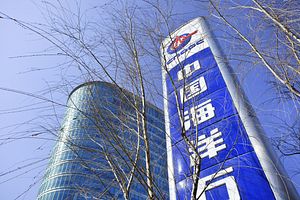2015 will be a pivotal year for China domestically, an important test for Xi Jinping’s ability to push through real changes in his third full year as China’s top leader. Two of Xi’s most important initiatives – restructuring China’s economy and fighting corruption within the Chinese Communist Party – will require a new willingness to go against the previously sacrosanct state-owned enterprises.
China has over 150,000 SOEs at the national and local level, ranging from well-known behemoths like China Petro, China Mobile, and China Shipping to smaller provincial-level firms that often branch out into odd market areas such as hotels and shopping malls. Many of these companies have serious internal problems, including mismanagement, inefficiency, and inaccurate accounting methods.
Perhaps most concerning, from an economic point of view, is that these companies simply are not very profitable. Since the financial crisis, despite continued rapid growth in China, average SOE profitability has fallen. According to The Economist, returns on investment for SOEs are at around 5 percent, compared to over 9 percent for private firms. Beijing’s bid to encourage partial privatization of these firms is partially driven by a hope that private ownership will create more of an incentive for SOEs to follow best business practices.
As it stands, many of China’s SOEs seem to have grown complacent, accustomed to government-mandated monopolies, easy access to credit, and government subsidies. Not only do their inefficiencies drag down China’s economy as a whole, but the privileges afforded to SOEs unnaturally restrict competition. That will be a problem as China seeks to foster increased domestic innovation.
Part of the reason China’s SOEs are so inefficient is that they are a breeding ground for corruption: the perfect intersection of money and power. It’s no surprise, then, that Xi’s latest comments about the need for tighter control over the SOEs came in the context of anti-corruption. Speaking at the fifth plenary session of the Central Commission for Discipline Inspection (CCDI), the Party’s anti-graft watchdog, Xi said that the Party must strengthen both its control over and its supervision of SOEs and their top executives. “The state-owned assets and resources, which do not come easy, are the common property of all people of the country,” Xi said. He added that the disciplinary inspection organizations within each SOE should themselves be subject to investigations and supervision.
Xi and the CCDI have already proven they are not afraid to target major SOEs. According to People’s Daily, over 70 executives at SOEs were placed under investigation for corruption in 2014, most notably Song Lin, the former chairman of China Resources. Most of the probes focused on energy and resources firms, financial firms, and media and telecommunications firms. The article also suggests that the government body responsible for supervising the SOEs, the State-owned Assets Supervision and Administration Commission (SASAC) is not doing its job. SASAC has been accused of dragging its feet on implementing SOE reform; Xi may be looking for a solid excuse to shake up that organization as well.
Last December, a CCDI official promised that there would be more internal inspections at SOEs. Hao Mingjin, CCDI’s vice minister of supervision, also warned that SOE executives were considered to be at “high risk” for corruption – and that a corrupt chief executive could easily lead to a “graft gang” that involves subordinates down the chain of command. Chinese state media have already identified one such political faction: the “Petroleum Gang,” associates of the fallen Zhou Yongkang during his time at the China National Petroleum Corporation.
The anti-corruption campaign against SOEs provides a key opportunity for Xi Jinping to push forward with more general reforms to state-owned businesses. SOEs form a powerful political bloc in China, but Xi is demonstrating his own power by aiming his anti-corruption campaign squarely at these institutions and their leaders. Still, removing some ne’er-do-wells from their posts is a far cry from actually implementing the structural reforms that are necessary to make SOEs accountable, efficient, and profitable.
































